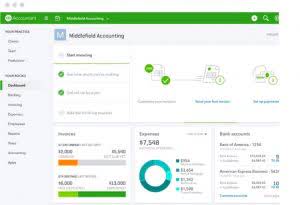
In the U.S., licensed CPAs must have earned their designation from the American Institute of Certified Public Accountants (AICPA). Accounting information exposes your company’s financial performance; it tells whether you’re making a profit or just running into losses at the end of the day. Because of the simplified manner of accounting, the cash method is often used by small businesses or entities that are not required to use the accrual method of accounting. Accountants may be tasked with recording specific transactions or working with specific sets of information. For this reason, there are several broad groups that most accountants can be grouped into. In the example above, the consulting firm would have recorded $1,000 of consulting revenue when it received the payment.
Экономика Нью-Йорка

In this section, we’ll briefly review the roles of accountants vs. CPAs and tax professionals. Accounting is like a powerful machine where you input raw data (figures) and get processed information (financial statements). The whole point is to give you an idea of what’s working and what’s not working so that you can fix it.

Users of Financial Accounting/Financial Statements
I believe a good accountant is one who understands what your business does, the expenses required for you to operate, and any financial challenges you might have on your radar. I believe the best way to prepare is to educate yourself on your business’s tax obligations, keep accurate records, and set aside revenue (or pay ahead in quarterly taxes). An income statement shows your company’s profitability and tells you how much money your business has made or lost. All financial reporting methods should be consistent across time periods. Management accountants present financial data to stakeholders and senior leadership at a company. They play a greater role in reviewing what products or services a company needs, as well as how these efforts can be financed.
- For example, if I spent $500 to fly to and attend a marketing conference, that’s $500 less I owe in taxes for that year.
- The cash method recognizes revenue and expenses on the day they’re actually received or paid.
- I like to remember equity as the difference between my business’s assets (what I own) and liabilities (what I owe).
- That includes what’s being spent and what money the business is making.
- Managerial accounting uses operational information in specific ways to glean information.
A Guide to Managerial Accounting
A balance sheet reports a company’s financial position as of a specific date. It lists the company’s assets, liabilities, and equity, and the financial statement rolls over from one period to the next. Financial bookkeeping services in sacramento guidance dictates how a company records cash, values assets, and reports debt.
- It’s not just about crunching numbers; it’s about understanding the story behind those numbers and how they impact the organization’s overall health and direction.
- Similar to other processes and strategies across your business, I’m of the opinion that constantly reviewing and evaluating your accounting methods is also essential.
- For example, if I produce 1,000 units of a product and the cost of raw materials is $5,000, producing 2,000 units might raise that cost to $10,000.
- (Hallelujah for modern-day technology, right? 🙌🏼) Check out solutions like Gusto, Zenefits, and Intuit QuickBooks Payroll.
- In addition, accounting makes it possible to create financial projections to plan for the future and anticipate sales and expenses.

These firms, along with many other smaller firms, comprise the public accounting realm that generally advises financial and tax accounting. The history of accounting has been around almost as long as money itself. Accounting history dates back to ancient civilizations in Mesopotamia, Egypt, and Babylon. For example, during the Roman Empire, the government had detailed records of its finances.
- The principles are the basis of all financial accounting technical guidance.
- The ability to think logically is also essential, to help with problem-solving.
- Some scholars have argued that the advent of double-entry accounting practices during that time provided a springboard for the rise of commerce and capitalism.
- Relevant information helps improve predictions of future events, confirms the outcome of a previous prediction, and should be available before a decision is made.
- For example, if I’ve recorded various transactions throughout the month, I’ll generate a trial balance to see if the total debits match the total credits.
- I will also discuss the basic accounting tasks that small business owners need to take care of, and skills that are valuable in the field.
Merchants not only needed to track their records but sought to avoid bankruptcy as well. Nonprofit entities and government agencies use similar financial statements; however, their financial statements are more specific to their entity types and will vary from the statements listed above. Work opportunities for a financial accountant can be found in both the public and private sectors. A financial accountant’s duties may differ from those of a self-employed accountant who works for many clients preparing their accounts, tax returns, and possibly auditing other companies. In addition to being relevant and reliable, accounting information should be comparable and consistent.
Principle of Utmost Good Faith
Business owners should be able to enter transactions, reconcile accounts and interpret financial statements accurately. For example, a company has to reference specific time periods in reports and follow the same accounting method across time periods to ensure accurate comparisons. Though small businesses aren’t required to follow the same rules, doing so can help ensure a higher level of consistency. Accounting is the process of recording financial transactions pertaining to a business. The accounting process includes summarizing, analyzing, and reporting these transactions to oversight agencies, regulators, and tax collection entities. The financial statements used in accounting are a concise summary of financial transactions over an accounting period, summarizing a company’s operations, financial position, and cash flows.

Add Comment